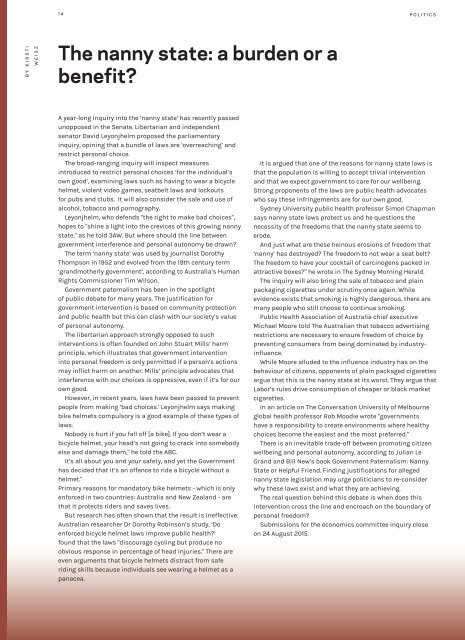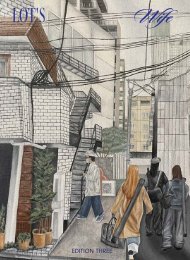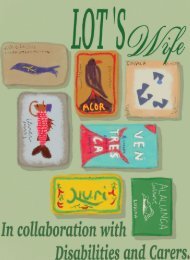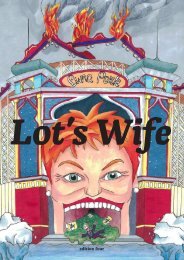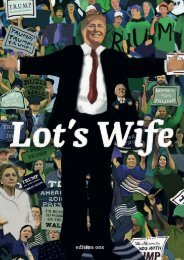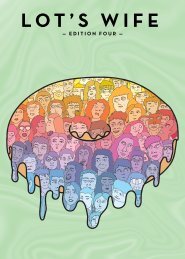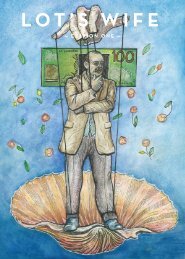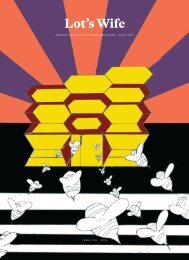Create successful ePaper yourself
Turn your PDF publications into a flip-book with our unique Google optimized e-Paper software.
14<br />
POLITICS<br />
BY KIRSTI<br />
WEISZ<br />
The nanny state: a burden or a<br />
benefit?<br />
A year-long inquiry into the ‘nanny state’ has recently passed<br />
unopposed in the Senate. Libertarian and independent<br />
senator David Leyonjhelm proposed the parliamentary<br />
inquiry, opining that a bundle of laws are ‘overreaching’ and<br />
restrict personal choice.<br />
The broad-ranging inquiry will inspect measures<br />
introduced to restrict personal choices ‘for the individual’s<br />
own good’, examining laws such as having to wear a bicycle<br />
helmet, violent video games, seatbelt laws and lockouts<br />
for pubs and clubs. It will also consider the sale and use of<br />
alcohol, tobacco and pornography.<br />
Leyonjhelm, who defends "the right to make bad choices",<br />
hopes to "shine a light into the crevices of this growing nanny<br />
state," as he told 3AW. But where should the line between<br />
government interference and personal autonomy be drawn?<br />
The term ‘nanny state’ was used by journalist Dorothy<br />
Thompson in 1952 and evolved from the 19th century term<br />
‘grandmotherly government’, according to Australia’s Human<br />
Rights Commissioner Tim Wilson.<br />
Government paternalism has been in the spotlight<br />
of public debate for many years. The justification for<br />
government intervention is based on community protection<br />
and public health but this can clash with our society’s value<br />
of personal autonomy.<br />
The libertarian approach strongly opposed to such<br />
interventions is often founded on John Stuart Mills’ harm<br />
principle, which illustrates that government intervention<br />
into personal freedom is only permitted if a person’s actions<br />
may inflict harm on another. Mills’ principle advocates that<br />
interference with our choices is oppressive, even if it’s for our<br />
own good.<br />
However, in recent years, laws have been passed to prevent<br />
people from making ‘bad choices.’ Leyonjhelm says making<br />
bike helmets compulsory is a good example of these types of<br />
laws.<br />
Nobody is hurt if you fall off [a bike]. If you don’t wear a<br />
bicycle helmet, your head’s not going to crack into somebody<br />
else and damage them," he told the ABC.<br />
It’s all about you and your safety, and yet the Government<br />
has decided that it’s an offence to ride a bicycle without a<br />
helmet."<br />
Primary reasons for mandatory bike helmets - which is only<br />
enforced in two countries: Australia and New Zealand - are<br />
that it protects riders and saves lives.<br />
But research has often shown that the result is ineffective.<br />
Australian researcher Dr Dorothy Robinson’s study, ‘Do<br />
enforced bicycle helmet laws improve public health?’<br />
found that the laws "discourage cycling but produce no<br />
obvious response in percentage of head injuries." There are<br />
even arguments that bicycle helmets distract from safe<br />
riding skills because individuals see wearing a helmet as a<br />
panacea.<br />
It is argued that one of the reasons for nanny state laws is<br />
that the population is willing to accept trivial intervention<br />
and that we expect government to care for our wellbeing.<br />
Strong proponents of the laws are public health advocates<br />
who say these infringements are for our own good.<br />
Sydney University public health professor Simon Chapman<br />
says nanny state laws protect us and he questions the<br />
necessity of the freedoms that the nanny state seems to<br />
erode.<br />
And just what are these heinous erosions of freedom that<br />
‘nanny’ has destroyed? The freedom to not wear a seat belt?<br />
The freedom to have your cocktail of carcinogens packed in<br />
attractive boxes?" he wrote in The Sydney Morning Herald.<br />
The inquiry will also bring the sale of tobacco and plain<br />
packaging cigarettes under scrutiny once again. While<br />
evidence exists that smoking is highly dangerous, there are<br />
many people who still choose to continue smoking.<br />
Public Health Association of Australia chief executive<br />
Michael Moore told The Australian that tobacco advertising<br />
restrictions are necessary to ensure freedom of choice by<br />
preventing consumers from being dominated by industryinfluence.<br />
While Moore alluded to the influence industry has on the<br />
behaviour of citizens, opponents of plain packaged cigarettes<br />
argue that this is the nanny state at its worst. They argue that<br />
Labor’s rules drive consumption of cheaper or black market<br />
cigarettes.<br />
In an article on The Conversation University of Melbourne<br />
global health professor Rob Moodie wrote "governments<br />
have a responsibility to create environments where healthy<br />
choices become the easiest and the most preferred."<br />
There is an inevitable trade-off between promoting citizen<br />
wellbeing and personal autonomy, according to Julian Le<br />
Grand and Bill New’s book Government Paternalism: Nanny<br />
State or Helpful Friend. Finding justifications for alleged<br />
nanny state legislation may urge politicians to re-consider<br />
why these laws exist and what they are achieving.<br />
The real question behind this debate is when does this<br />
intervention cross the line and encroach on the boundary of<br />
personal freedom?<br />
Submissions for the economics committee inquiry close<br />
on 24 August <strong>2015</strong>.


